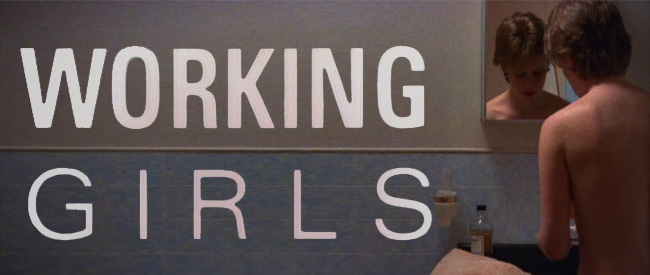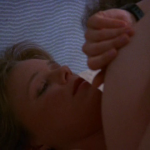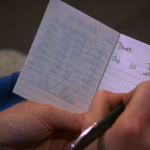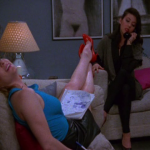WORKING GIRLS
Dir. Lizzie Borden, 1986
USA, 93 min.
SATURDAY, NOVEMBER 2 – 7:30 PM
SUNDAY, NOVEMBER 10 – 7:30 PM
MONDAY, NOVEMBER 25 – 10:00 PM
Independent filmmaker Lizzie Borden, director of the underground feminist classic BORN IN FLAMES (1983), directed her next feature WORKING GIRLS in 1986. Taking a more widely accessible approach in style and story structure, WORKING GIRLS follows three prostitutes working in an upscale brothel through one long day at work. The film is told largely through the eyes of Molly (Louise Smith), a woman with an Ivy League education who’s lying to her live-in girlfriend about her new job. Gina plans to open her own beauty salon when she’s saved enough money, and Dawn is a young law student trying to finish her homework in between clients.
Borden spent six months interviewing prostitutes in various economic situations to find out about the conditions in which they worked and how they felt about their jobs. WORKING GIRLS was made partly in response to some feminists’ anti-pornography stance and the Canadian documentary/exposé NOT A LOVE STORY (1981) which condemned pornography and, in Borden’s view, made many women working in the sex industry feel bad about their choices.
In this culture one hears constantly about the sacrifice you have to make for doing prostitution. I’ve been attacked by everyone: by feminists who say, ‘You’re soft-peddling prostitution; prostitution is wrong’; and by spiritual women who say you can’t have all these sexual encounters without doing damage to your soul. But nobody criticizes the forty-hour workweek. Nobody criticizes the fact that for the most part people are trained into positive thinking about jobs that don’t make use of half their talents. There are bad things about prostitution, but they’re not the ones you see in the movies.
Incredibly smart and insighful WORKING GIRLS is a film about a group of women choosing prostitution as a means to support themselves, and it succeeds at expressing a message that is neither pro- nor anti-prostitution. Through its screenplay (co-written with Sandra Kay), direction and camerawork, it reveals sex work as a normal job for many, with long hours, less than desired pay, a ringing phone, and a micro-managey boss (Madam). (Can work ever be sexy?) In addition, it consciously attempts to shift the camera-eye from a male gaze by avoiding voyeuristic approach in the cinematography.
There’s no shot in the film where you see Molly’s body the way a man would frame her body to look at it, except when she’s looking at herself that way…
WORKING GIRLS is the realest movie about sex work (and perhaps work under capitalism) we’ve seen in awhile — by no means an erotic film, it will likely make you blush and laugh awkwardly for its directness.
—
Quotes from Lizzie Borden in “Interview with Lizzie Borden.” Author(s): Scott MacDonald and Lizzie Borden. Feminist Studies, Vol. 15, No. 2, The Problematics of Heterosexuality (Summer, 1989), pp. 327-245.





